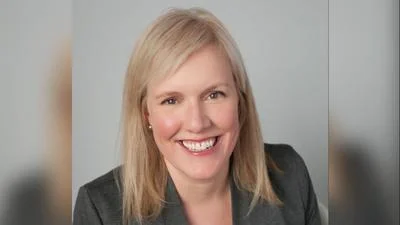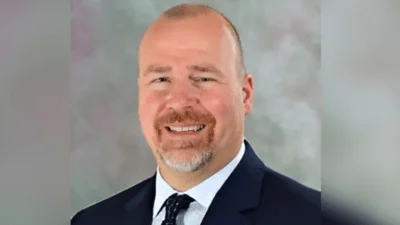U.S. Sen. Tammy Baldwin (D-WI) | Twitter/Sen. Tammy Baldwin
U.S. Sen. Tammy Baldwin (D-WI) | Twitter/Sen. Tammy Baldwin
Wisconsin U.S. Sen. Tammy Baldwin, a Democrat, has downplayed rising concerns about inflation and a Congressional Budget Office (CBO) report that the Biden administration’s Build Back Better Act may increase the national debt by $3 trillion.
“Here is some background so you understand what the recent CBO report is and isn’t,” Baldwin's Communications Director John Kraus told Metric Media News Service. “It is not an analysis of the House passed Build Back Better Act, which would not 'increase the national debt by $3 trillion.' Nor is it an analysis of a Senate version of the bill. It is a report on hypothetical modifications to BBB legislation requested by Republicans that analyze the cost if provisions in the Build Back Better Act were permanent, which they are not, and if they weren’t paid for, which the House bill does not propose, the Senate hasn’t proposed, and President Joe Biden hasn’t proposed. The Republican-requested fake CBO score does not take into account the fact that President Biden and Democrats have committed that any extensions of the Build Back Better Act in the future will be fully offset, therefore ensuring any extensions will not increase the deficit. CBO has confirmed that Republicans did not include this important fact in their request, further showing the GOP’s fake CBO score request is nothing more than a partisan attempt to mislead the public. In fact, a letter from 56 of America’s top economists says, 'Congress can alleviate some of the strain caused by inflation by passing the Build Back Better Act, which will lower everyday costs for families, including child care, health care, utility bills, prescription drugs, and education.' In addition, a CBPP analysis showed that the House-passed Build Back Better legislation would generate substantial savings in its second decade (2032-2041), CBPP projections show."
Sen. Joe Manchin of West Virginia said over the weekend that he could not support the Build Back Better bill in its current form, given its possible effects on inflation. The apparent failure of the bill to attract enough Democratic votes to pass the Senate also led Goldman Sachs to reduce its projections on U.S. economic growth in the coming year.
A recent Congressional Budget Office (CBO) report found that the national debt would rise by $3 trillion in the likely event that BBB social spending programs are extended beyond the short initial time periods.
Such projections come as economic data shows that the U.S. inflation rate in December reflected a 39-year high, according to Fox Business News.
"Inflation at a nearly 40-year high is not something the Federal Reserve can ignore,” Danielle DiMartino Booth, a former Dallas Fed adviser, said. “While gas prices are starting to decline, there is still plenty of food inflation. There is risk now that inflation has become entrenched in households’ psyches, which further pressures policymakers at the Fed to be more aggressive in their tightening stance."
The U.S. Producer Price Index jumped 9.6% in November compared to the same time in 2020, according to CNBC. Prices rose 0.7% during the month of November alone when food, energy and trade services costs are factored out – the largest gain on record.
Such price reports seem to be spooking consumers. A recent Morning Consult survey concluded that six out of 10 voters are “very concerned” about inflation, while 27% are “somewhat concerned." Concerned voters included large majorities of both Republicans and Democrats, the poll found.
An ABC News-Ipsos poll found that more than two-thirds of U.S. residents opposed the way President Biden has dealt with inflation and that Biden’s approval ratings have dropped on the issues of crime and gun violence. Biden has said he expects inflation to decline if the BBB Act passes, even with the expected surge in the national debt if the plan becomes law.
The Committee for a Responsible Federal Budget has said that the bill would have mixed effects on inflation. Those provisions that add to public spending and demand for goods and services will put upward pressure on inflation, according to the committee. But some provisions that boost supply or reduce demand, such as offsetting tax increases, will help to reduce inflation.
Mark Stephenson, director of dairy policy analysis at the University of Wisconsin-Madison, said that inflation may reverberate strongly on the nation’s farms.
“I think that one of the things we are going to see, with the kind of wage inflation we have, is that people are going to invest in labor-saving technology, and at the farm level that means automation,” Stephenson told WQOW.
Higher inflation will also make it more difficult for Americans to monitor which costs are rising fastest, according to University of South Carolina economist William Hauk.
“For consumers, higher prices on essential goods like food and gasoline may become unaffordable for people whose paychecks aren’t rising as much,” Hauk told the Kitsap Sun. “But even when their wages are rising, higher inflation makes it harder for consumers to tell if a particular good is getting more expensive relative to other goods, or just in line with the average price increase.”



 Alerts Sign-up
Alerts Sign-up